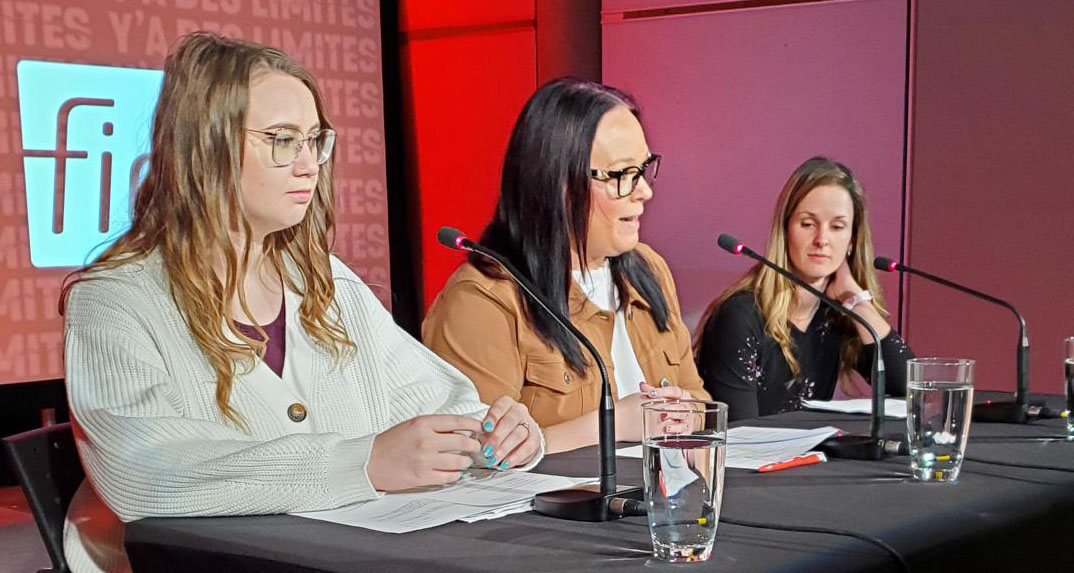
The reality of mandatory reassignments
Mandatory reassignments, what the government calls “flexibility,” are actually a key issue in the negotiations between the 80,000 healthcare professionals and the employer.
To allow Quebecers to better grasp the issues behind these forced unit or institution reassignments, the Fédération interprofessionnelle de la santé du Québec–FIQ has showcased two nurses’ personal stories who the employer attempted to reassign against their will.
“It could never be worse than killing someone.”
Last July, when Annabelle Beaudry was about to start her shift at the psychiatric unit where she has been working for two years, a member of management told her that she absolutely had to go fill in for an absent employee that evening in the surgery overflow. Since she had never worked in surgery, she politely refused the assignment, explaining that she didn’t feel she had the experience or expertise required for the replacement, as recommended by the Ordre des infirmières et infirmiers du Québec (OIIQ). Furthermore, there were already two absent employees in the psychiatric unit.
The employer then pressured her, implying that it would be her fault if it went badly in surgery. Annabelle then thought to herself: “It could never be worse than killing someone.”
Around 7 pm, with two employees absent in the psychiatric unit, Annabelle was sent home. The employer tried to send her to surgery twice more without training.
“I don’t want that weighing on my conscience.”
Since 2018, Tracey Beaudoin has been working in Plessisville. She conducts home visits with new mothers to check on their health and the health of their newborns, she provides coaching and vaccinates children. Last year, her employer decided that she should occasionally work in neonatology and take care of babies who are only a few hours old and mothers who just gave birth.
“I was terrified. I had never worked in neonatology and I didn’t think I had the expertise to do the job I was being forced to do. I was very scared of committing a serious error for a mother or a baby. I do not want that weighing on my conscience for the rest of my life,” explained Tracey Beaudoin.
Mandatory reassignments put patients’ health in danger
“When a healthcare professional refuses to be forced to work in another unit, it is not because they don’t want to take care of patients, it’s because they believe they do not have the expertise or experience necessary to properly care for the patients. Taking a healthcare professional who is an expert in their unit and sending them elsewhere to fill in a hole is not a gain in care, it is a loss of expertise,” concluded Julie Bouchard, FIQ President.
The FIQ denounces the government’s lack of vision for the Quebec health network. Instead of implementing measures, like ratios, that will improve and make public care safer, the government is proposing temporary measures that will burn out healthcare professionals and push them out the door.